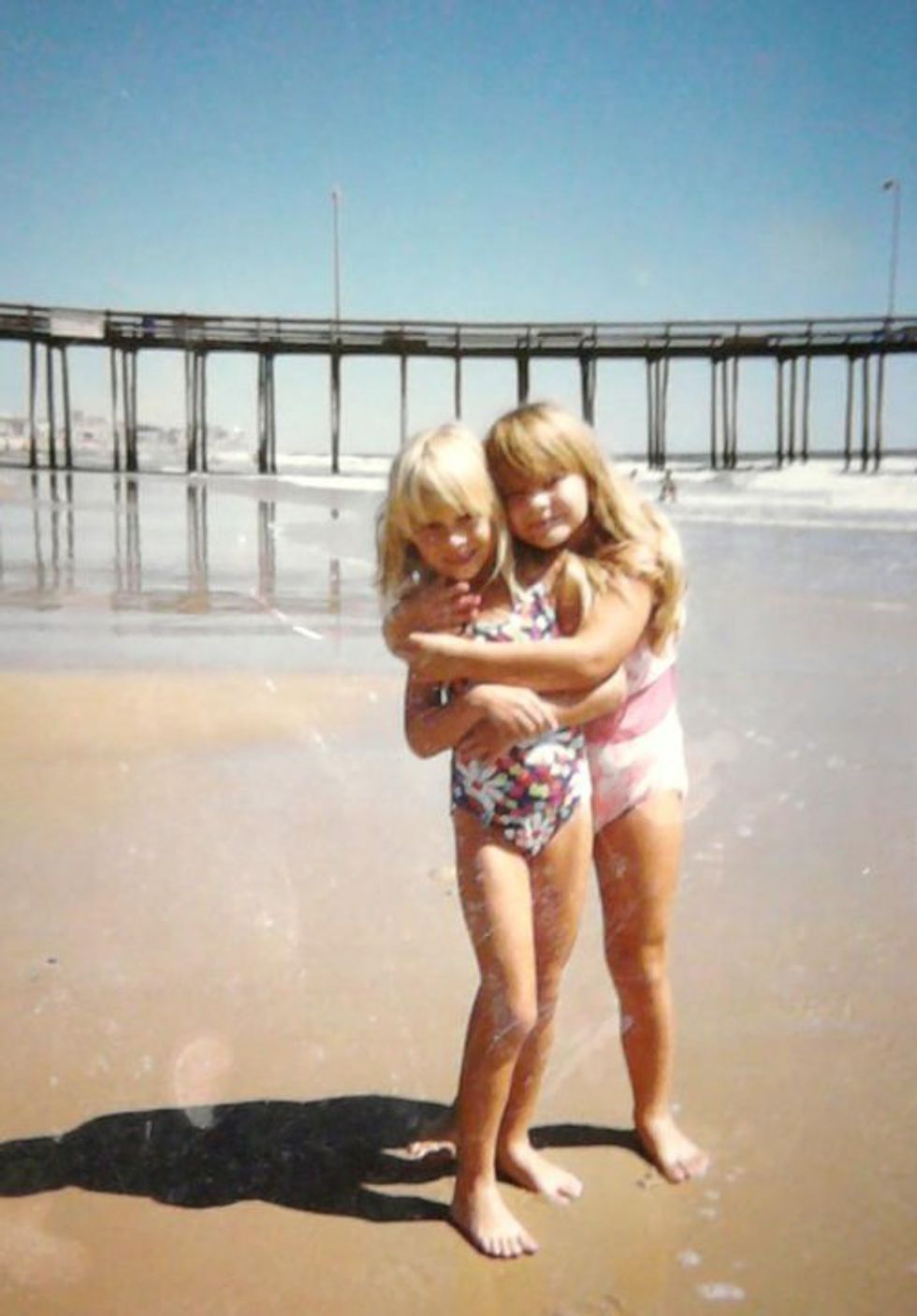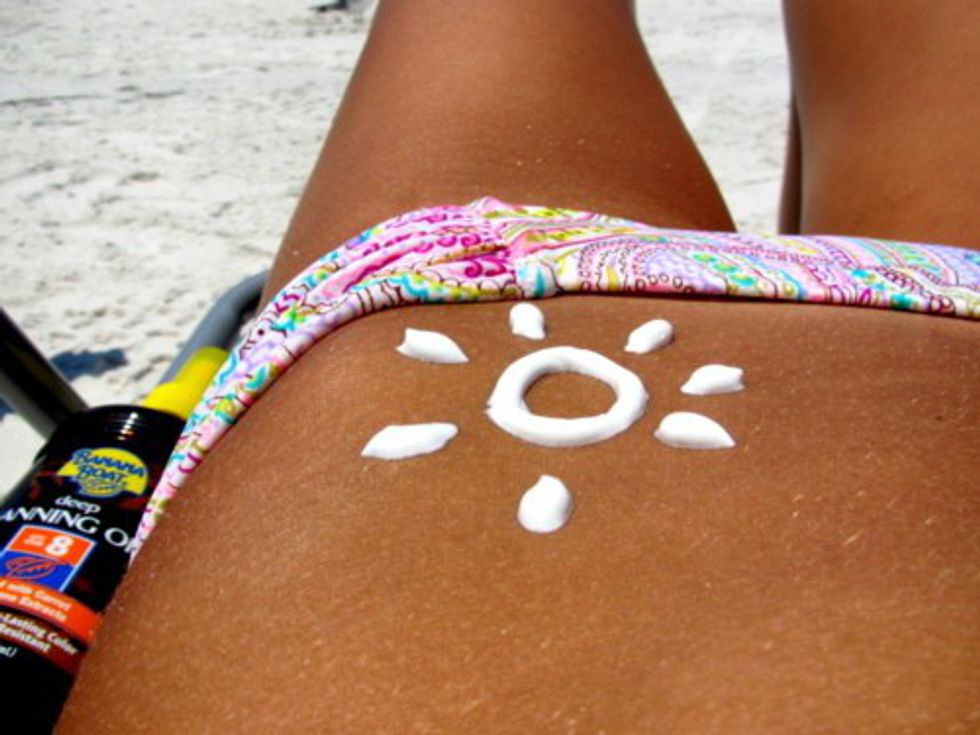Summertime -- it's about the long days at the beach, the sweet drinks, the late nights with my friends as I push the sand between my toes and the feeling of the warm sun kissing my skin. I could spend hours underneath that sun, letting it soak under my skin while the summer breeze cools me off just enough to not want to take a dip in the water. There’s a satisfying feeling I get when I peak beneath my bikini strap and see that faint white line appear on my skin. A little bit of sun never hurt anyone, right?
I grew up on the Eastern Shore. As a child, that meant long days at the beach or playing hide-and-seek in the cornfields next to my house. Regardless of the activity, I was constantly in the sun. It wasn’t something my family thought about seriously, as long as we all lathered up with a little bit of sunblock every once in a while we thought we were fine. I would literally spend the whole day in the water, only coming out for the occasional snack and to reapply sunblock to my nose. By the end of each summer, my skin would be the shade of a cappuccino, and my hair sun-bleach blonde. This would be me for the next 10 years of my life. A cycle of pool days and summer sports and sunburns that turned into dark tans. I was a child of the sun, and I loved every bit of it.
When I was a teen, I found out that my grandfather had been diagnosed with skin cancer. At first, I didn’t realize what that meant. Still very much a child -- or at least too young to comprehend the seriousness of the matter -- I was told that it meant he had too many sunburns growing up. It wasn’t until I was older that I began to see what it actually meant.
My grandfather has continued his battle with skin cancer for the past 12 years, never blinking an eye in a situation that would frighten most. Each year, a little bit more gets taken off; sometimes it’s a piece of ear or a bit of nose. But you’ll never hear him complain. When I visit my grandparents, I see my grandfather try and cover up his marks; not wanting us to know that he’s had yet another spot removed. Some days he’ll try and blow it off as a shaving nick or he’ll use Band-Aids to try and hide the stitches.
I’m lucky enough that my grandfather has been able to control the spread of his cancer -- and for those of you who don’t know, yes, skin cancer spreads. But each successful removal doesn’t guarantee that there won’t be future spots. After seeing everything that he’s had to go through, it’s changed my perspective on what a day in the sun means.
I see my friends go to the tanning beds regularly, or spend days at the beach with only tanning oil to offer the thinnest of protection. My friends laugh when they see me trudge onto the beach, umbrella in hand with a wide-brimmed hat covering my face and two kinds of sunblock packed in my bag.
In moderation, the sun can do wonders for the body. We all know that at least 15 minutes of sun can boost your mood, but according to the American Academy of Dermatology, catching some rays can do a lot more than just that. It helps with the creation of vitamin D, which helps support your immune system, benefit bone health and actually boost weight loss -- who knew that being outside was this good for you. But what happens when we get a little sun-obsessed?
According to the Skin Cancer Foundation, one in five Americans will develop skin cancer in their lifetime. In fact, you are more likely to develop skin cancer from tanning than develop lung cancer from smoking. On average, a person’s risk for melanoma doubles if he or she has had more than five sunburns.
Here’s what you need to do to keep your skin healthy this summer
Use sunblock every time you go out, and make sure you’re actually applying it 15 minutes before you go out. Your sunblock should have these listed on the bottle: broad-spectrum protection, SPF 30‑or higher and water resistant.
Why is this important? Broad-spectrum protection means that your sunblock is protecting you against both UVA and UVB rays. UVA rays, while also the main contributor to aging, are also heavily linked to the development of skin cancer. Having a sunblock that is at least SPF 30 will block out 97 percent of those rays. Water resistant will make sure that you can hop in the water for a little while without it all coming off.
The Academy of Dermatology also has a few more recommendations for anyone venturing out during the summer:
Wear a wide-brimmed hat to keep the top of your head protected.
Wear sunglasses -- even your retinas can get a sunburn.
Stay near shade -- under a tree or bring an umbrella.
I still spend days a the beach -- I could never give those up -- I'm just smarter about how I expose my skin. Have your fun in the sun, just do it safely because the tan look may be in, right now, but skin cancer is not.





















